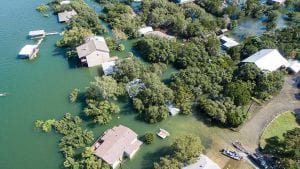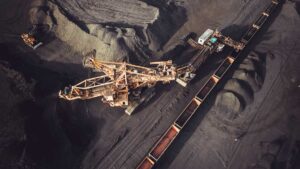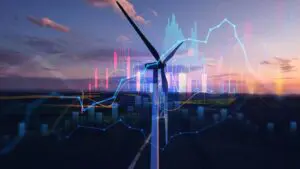The last official round of negotiations before the Paris climate change talks have broken up in Bonn, with some progress made but a global climate deal still needing fresh impetus from political leaders to put the world on a course to rapidly decarbonise the global economy.
In Bonn, after a week of talks, a 20-page text was expanded to 63 pages, and will need to be cut back. But at least there appears to be agreement on what needs to be resolved. The principal blockages remain around the scale of ambition, and on issues such as finance and the concept of “loss and damage”.
The UN has what it says is a “manageable” text and a good “starting point” for negotiations. The text, say observers, has been expanded as each country or bloc inserts their own “bargaining” chip. They say it is now time for the leaders to step in.

Which is why the success or failure of the Paris talks will depend on the likes of Australian prime minister Malcolm Turnbull, the newly elected Canadian PM Justin Trudeau, and of course the major players in the world economy – US president Barack Obama, China’s Xi Jinping, India’s Rajendrah Modi, and the European Union.
Over the next few weeks a series of meetings will be held to try to resolve some of those issues. A pre-Paris ministerial meeting will take place in the French capital from November 8-10, which will be attended by environment minister Greg Hunt.
The G20 Heads of State will then meet in Turkey a few days later, followed by the Heads of State meeting of the Commonwealth (CHOGM) in Malta just before the Paris summit opens.
And it now seems clear that global leaders , including Turnbull, will be invited to be at Paris for the first few days of the talks in an endeavour to break any lingering political deadlock. Those talks will begin on November 30 and last for two weeks. Hunt and foreign minister Julie Bishop will also be in Paris at various points.

Paris should rival Copenhagen as an “event” and a spectacle. Nearly 50,000 people are expected to converge on the French capital for the talks – known as COP21 (they’ve been doing this for 21 years), and for numerous side events.
Australia’s own official delegation could total nearly 30. Another 60 NGOs and “BinGOs” (business types) will also be on the ground. And the media too. RenewEconomy, the only Australian media to cover the last three COPs, will also be there.
What’s at stake is becoming increasingly apparent. Failure at Paris will mean talks drifting aimlessly, possibly for years. Sealing a deal that locks in 2°C means trillions for the fossil fuel industry, because it will mean a major and rapid shift to clean technologies.
The move by the French hosts for an early intervention from political leaders is in complete contrast to the Copenhagen talks, which ended in disarray and confusion after leaders flying in at the last minute were unable to agree on the finer points of text.
Turnbull last week, in an interview with the Guardian, confirmed he will be attending the Paris talks. It will be a particularly poignant moment for him, because it was in the days leading up to the Copenhagen talks that Turnbull was rolled – as opposition leader – by Tony Abbott, over the very same issue.
Turnbull goes to Paris defending Abbott’s climate change policies – a 2030 emissions target that is described as weak, or modest at best, and a mechanism that no one outside of the Coalition seriously thinks will do the job.
This is a critical point for Australia. Turnbull also goes to Paris saying he wants an outcome that puts the world on a path to 2°C, so any effort to lift ambition will be consistent with that policy.
And Australia’s mechanisms, to date, simply consist of plucking emissions from accounting changes or government handouts. It is not yet setting the motions for a decarbonised economy.
As Erwin Jackson from the The Climate Institute notes: “That is the test for this government, and that is where government is trailing business. Business supports the concept of zero net emissions. It is time for the government to catch up.”
The Coalition’s target is for a 26 per cent reduction on 2005 levels by 2030, which represents a 19 per cent reduction on 2000 levels.
It says it will increase this target to 28 per cent if there is no economic fallout, but its own studies show minimal extra economic costs under a 45 per cent reduction target, and even that is based on inflated costs of renewable energy.
This is the opportunity that Turnbull has to help change the course of history. He can’t do it alone, but if more countries, such as Australia and Canada, take a proactive role, rather than dragging the chains, then an effective climate agreement can be achieved.
Turnbull, of course, insists that he takes climate change seriously. No doubt he will be less evangelistic, and hopefully less naive, than Kevin Rudd, when the then Labor PM went to Copenhagen convinced he could broker a deal between China and the US, and was mortified when he could barely get a seat at the table.
Much has changed since then. China and the US have been working hard to put on a good show that they are taking climate change seriously. Both have put in tough policies to reduce emissions and force out the dirtiest coal-fired generation.
Environmental NGOs say that climate finance remains the elephant in the room: developing nations want more clarity and detail on the $100 billion promised annually by developed countries, and on boosting it after 2020.
Richer nations do not want to be locked into details. But at Bonn, 134 developing countries demanded that developed nations commit to scaling up public climate aid in December’s UN deal.
And, of course, there is the so called “pollution gap”. Right now, the pledges from more than 150 countries would place an upper limit of around 2.7°C if those plans were implemented. That is opposed to the agreed target of 2°C, and a major push from vulnerable nations and some scientists for 1.5°C.
That gap will almost certainly not be resolved at Paris, but it is likely that a mechanism that will encourage emitters to ratchet up their climate targets every five years will be agreed.
In the meantime, Bill Shorten has left for a tour of the Pacific Islands accusing Turnbull of selling them short on climate change. Shorten’s criticism of the Coalition is valid, and Labor shows more ambition with its willingness to push (again) for an emissions trading scheme and a 50 per cent renewable energy target (they could go higher).
But the Pacific Islands will tell them that real action to protect the region will mean no new thermal coal mines, and Labor is emerging as an enthusiastic supporter of all new coal mines, including Carmichael, Shenhua and other extensions.
“The Australian government must help broker an agreement that is not just good for Australia, but will also protect and support poorer nations like our Pacific neighbours,” says Kellie Caught, campaigner with WWF.
“Actions speak lounder than words – increasing Australia’s pollution reduction targets, and providing more finance to support poor countries ahead of Paris would send the right signals.”







